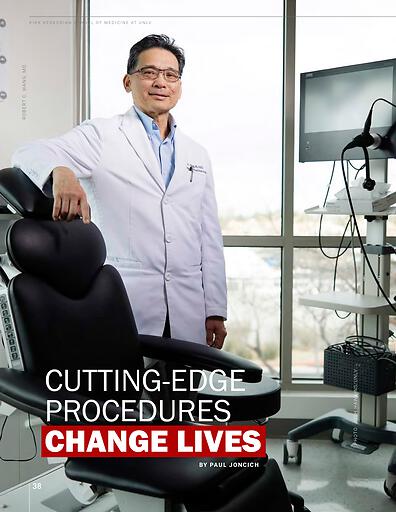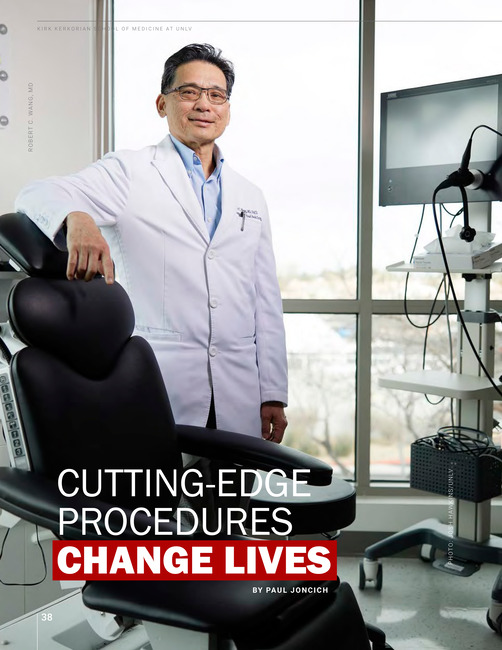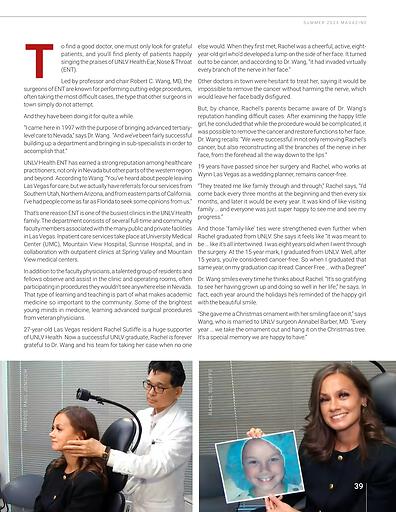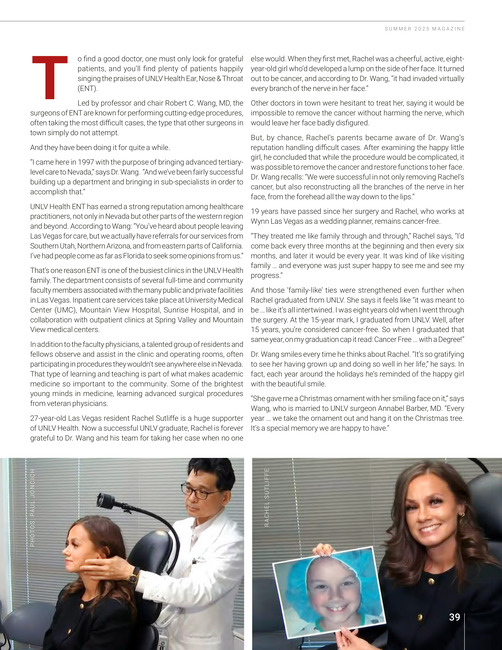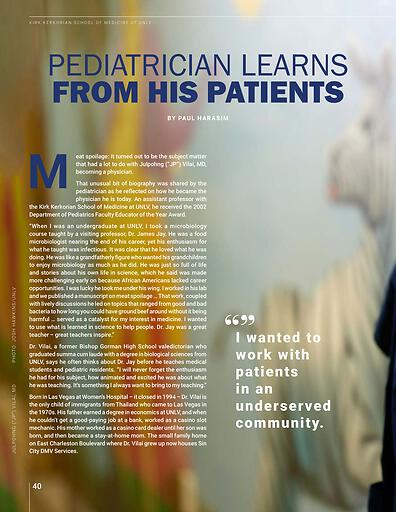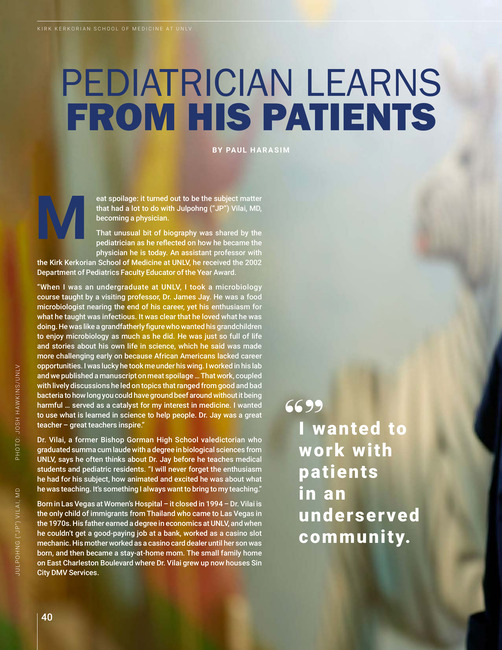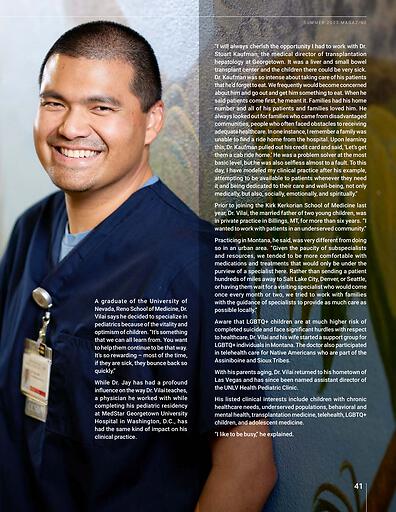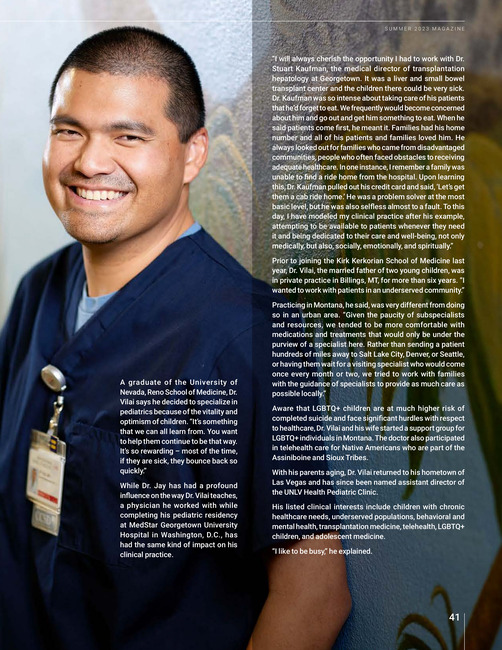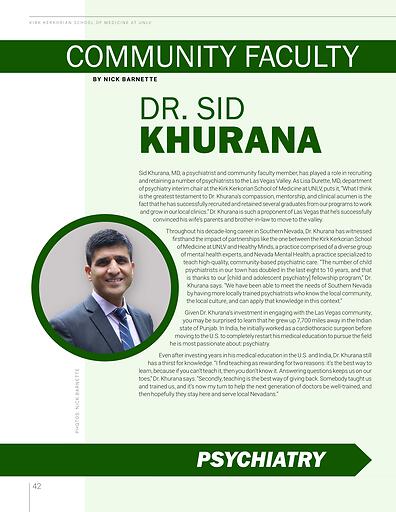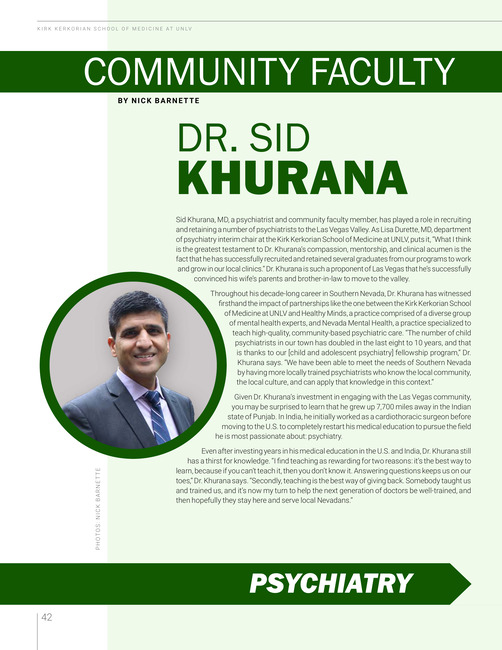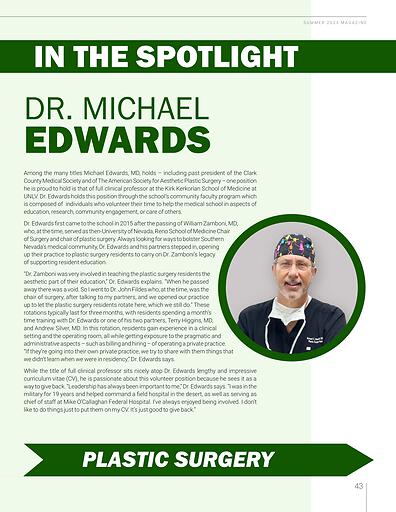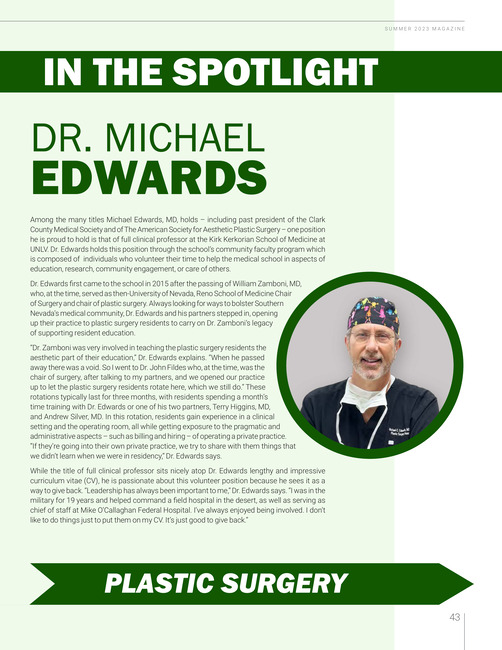Annual Pub 2023 FINAL - Flipbook - Page 41

SUMMER 2023 MAGAZINE
“I will always cherish the opportunity I had to work with Dr.
Stuart Kaufman, the medical director of transplantation
hepatology at Georgetown. It was a liver and small bowel
transplant center and the children there could be very sick.
Dr. Kaufman was so intense about taking care of his patients
that he’d forget to eat. We frequently would become concerned
about him and go out and get him something to eat. When he
said patients come 昀rst, he meant it. Families had his home
number and all of his patients and families loved him. He
always looked out for families who came from disadvantaged
communities, people who often faced obstacles to receiving
adequate healthcare. In one instance, I remember a family was
unable to 昀nd a ride home from the hospital. Upon learning
this, Dr. Kaufman pulled out his credit card and said, ‘Let’s get
them a cab ride home.’ He was a problem solver at the most
basic level, but he was also sel昀ess almost to a fault. To this
day, I have modeled my clinical practice after his example,
attempting to be available to patients whenever they need
it and being dedicated to their care and well-being, not only
medically, but also, socially, emotionally, and spiritually.”
Prior to joining the Kirk Kerkorian School of Medicine last
year, Dr. Vilai, the married father of two young children, was
in private practice in Billings, MT, for more than six years. “I
wanted to work with patients in an underserved community.”
A graduate of the University of
Nevada, Reno School of Medicine, Dr.
Vilai says he decided to specialize in
pediatrics because of the vitality and
optimism of children. “It’s something
that we can all learn from. You want
to help them continue to be that way.
It’s so rewarding – most of the time,
if they are sick, they bounce back so
quickly.”
While Dr. Jay has had a profound
in昀uence on the way Dr. Vilai teaches,
a physician he worked with while
completing his pediatric residency
at MedStar Georgetown University
Hospital in Washington, D.C., has
had the same kind of impact on his
clinical practice.
Practicing in Montana, he said, was very different from doing
so in an urban area. “Given the paucity of subspecialists
and resources, we tended to be more comfortable with
medications and treatments that would only be under the
purview of a specialist here. Rather than sending a patient
hundreds of miles away to Salt Lake City, Denver, or Seattle,
or having them wait for a visiting specialist who would come
once every month or two, we tried to work with families
with the guidance of specialists to provide as much care as
possible locally.”
Aware that LGBTQ+ children are at much higher risk of
completed suicide and face signi昀cant hurdles with respect
to healthcare, Dr. Vilai and his wife started a support group for
LGBTQ+ individuals in Montana. The doctor also participated
in telehealth care for Native Americans who are part of the
Assiniboine and Sioux Tribes.
With his parents aging, Dr. Vilai returned to his hometown of
Las Vegas and has since been named assistant director of
the UNLV Health Pediatric Clinic.
His listed clinical interests include children with chronic
healthcare needs, underserved populations, behavioral and
mental health, transplantation medicine, telehealth, LGBTQ+
children, and adolescent medicine.
“I like to be busy,” he explained.
41
